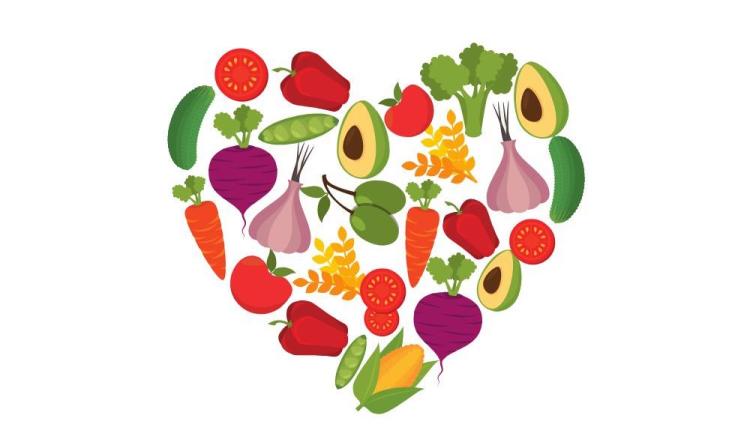June is Alzheimer's and Brain Awareness Month! Each week, the Memory and Brain Wellness Center team will share information on brain health! These important, evidence-based tips involve nutrition, sleep, nature exposure, stress reduction, physical activity, and social engagement, and cognitive stimulation. This week, we are sharing evidence-based information about promoting brain health through food choices.
Quick tip:
Ultra-processed foods can be harmful for the aging brain.
Ultra-processed foods — such as hot dogs, soda, packaged sweets, and instant noodles — are foods that have gone through industrial processes and are packed with additives like fats, sugars, artificial flavors, preservatives, and stabilizers. Research shows that diets heavy in these highly processed foods are linked to obesity, anxiety, and depression, and can be harmful for the aging brain. The good news is that eating a balanced diet rich in whole foods may protect against these harmful effects.
- What's the evidence? In a 2023 study from the University of São Paulo, researchers studied the eating habits of almost 11,000 adults over eight years. The team found that people who consumed the highest amount of ultra-processed foods had a 28% faster decline in cognitive scores, including on the ability to form and retrieve memories and to plan and perform goals, compared to those with a lower consumption of ultra-processed foods. [Read more in the New York Times]
- News you can use. Next Generation Medicine: Do Foods Have the Power to Heal? Learn about the difference between ultra-processed foods and whole foods in this public talk by Dr. Chris Damman, clinical associate professor of Gastroenterology at the University of Washington, who lives by the Hippocrates quote: "Let food be thy medicine and medicine be thy food." Dr. Damman shares how our bodies benefit from the compounds in whole foods, including fiber, phytonutrients, fats, and fermented products, such as plain yogurt, kimchi, miso, kombucha, and kefir. He shares valuable nuggets of information, including that oatmeal is his favorite breakfast because you can top this fiber-packed, low-cost food with other healthy foods, such as berries, nuts, seeds, or dark chocolate. [Watch at UW School of Medicine You Tube]
Whole foods promote brain health.

Meals that feature whole foods can help protect our brain and mental health as we age. "In terms of brain and cognitive health, the best data right now support the Mediterranean diet," says UW Medicine Geriatrician Dr. Angela Hanson, MD, "which includes relatively little red meat and emphasizes whole grains, fruits and vegetables, fish and shellfish, and nuts, olive oil and other healthy fats. Additionally, the Mediterranean-DASH Diet Intervention for Neurodegenerative Delay (MIND diet) has been linked to better cognitive performance and decreased risk of cognitive decline and dementia in several studies. The healthy foods included in the MIND diet are whole grains, leafy greens and other vegetables, nuts, beans, berries, poultry, fish and olive oil. Specific examples include kale, walnuts, blueberries, chicken, salmon, and avocados.
- What's the evidence? A 2023 Rush University study enrolled 581 people who agreed to donate their brains at death for research and tracked their diet for up to more than a decade. The study showed that diets of nutrient-rich, fiber-filled whole foods in the MIND and Mediterranean diets were associated with less Alzheimer's brain pathology, upon brain autopsy. Green leafy vegetables, such as spinach, romaine lettuce and kale, in particular were associated with less Alzheimer’s brain pathology. [National Institute on Aging]
- News you can use. In Snack Attack: the Alzheimer's Association offers tips to avoid ultra-processed foods and incorporate more heart and brain healthy foods into your diet. [Alzheimer's Association]
Nothing can replace the combination of a heart-health diet and regular exercise.
Take it from an expert...
I think we will find compounds, or a combination of compounds, that treat or delay Alzheimer's disease and other dementias. But, I will also say that we humans have always tried to search for supplements to replace a nutritious diet and exercise plan, and so far, we have not found anything that does. The best evidence for preventing dementia and improving cognitive aging is a lifetime of heart-healthy diet and exercise. Even if you start later in life with these healthy habits, there is good evidence that these healthy routines can change your brain chemistry—even if you have the early sign of Alzheimer disease symptoms, called mild cognitive impairment.
Angela Hanson, MD, UW Medicine Memory and Brain Wellness Center






